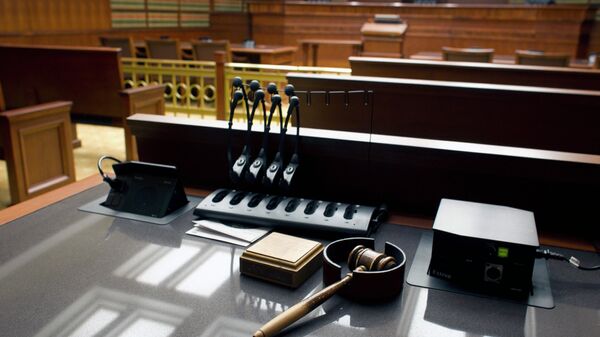The findings are the first in one of the most contentious and sensitive issues facing the police and the Crown Prosecution Service (CPS).
Sputnik: Could you tell me a little bit more about these figures? Why are so many young men who have been accused of rape, failing to be convicted?
Dominic Willmott: There's a number of reasons and it's the first time that these figures have been available. I'm a psychologist working in this area and I do research into this particular issue around specifically this age group. For a long time senior police officers, police officers on the ground and solicitors, lawyers and barristers have been telling me that there's something about these types of cases, within this age range of 18 to 24 year old defendants which is how the CPS categorize them, there's something about these cases that juries will not convict on. There's something they don't like about it and convictions are lower. Now for the first time, we have evidence to corroborate what people have been saying in practice, what they have been recognizing for some time. Psychologically, what I would say is going on and this has been clarified in the research that we've been carrying out at the University of Huddersfield for a while, is that jurors simply don't like attaching a label to a defendant in a rape case for this age group. What this tell us, is that they [jurors] may well see the legal definition of what non-consensual sexual activity, but they are so scared of determining this to be a rape conviction or to assign the label of rape, effectively they say we are not going to convict this case.
Dominic Willmott: For me, it definitely reflects a problem more broadly in society. There is no doubt in my mind whatsoever that part of the problem is that we select juries from the general society and they make up those deciding the fate of these cases. The stereotypes run deep, I often compare and they function very similarly to racist attitudes and constructed overtime through childhood, exposure to peer groups, family norms and that sort of stuff. They are not easy to change, which means ultimately the issue lies with the jurors. All judges in the UK are given training around rape and how to direct juries into not accepting these inaccurate stereotypical beliefs. We know this problem exists, I think these figures now without pointing fingers, are an opportunity for lots of justice organizations who regulate the law to say we need to do something different to tackle this problem. They can no longer hide from these figures, whether they knew they were there or not, and I would argue that they have known about this problem for a long time.
Sputnik: What do we need to see to improve the ability of juries and ultimately improve and strengthen equal justice for rape complainants?






